|
|
|
Editor's note
|
|
2019 will surely go down as the year when Australia seriously started freaking out about the health of the planet. As the year came to a close, major cities were shrouded in a smoke haze from ferocious bushfires. The COP25 international climate meeting in Madrid ended in failure and much of the nation was gripped by devastating drought.
But there is reason for optimism. As the below list of stories show, many people here and abroad are working hard to help solve the world’s environmental problems: seeking to feed the world with plant protein or regenerative farming, eliminate plastic use and protect vulnerable plant and animal species.
And there are positive steps we can take in our own lives. If you’re planning a big clean up over summer, find out below how to sustainably dispose of unwanted belongings, or how old clothes can be given new life. Learn how to reduce your carbon footprint, have better arguments about the environment, and importantly, how to stay optimistic when it feels like the planet is falling apart.
Our environmental problems are immense, but there is much to be hopeful about in 2020.
P.S. If you’ve enjoyed The Conversation this year please donate today and help safeguard quality journalism in 2020 and beyond. The best way you can support us is by giving a monthly donation of whatever you can afford.
|
Nicole Hasham
Section Editor: Energy + Environment
|

|
|
|
|
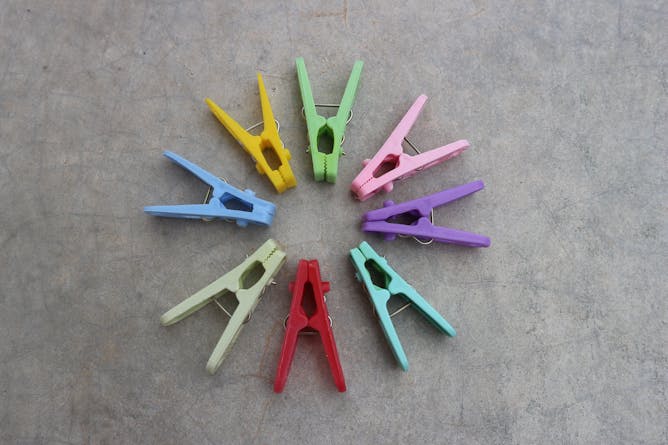
Fast fashion doesn’t have to end up in landfill.
Shutterstock
Catriona Vi Nguyen-Robertson, University of Melbourne; Nolene Byrne, Deakin University
A new clothing recycling process can counter the environmental costs of fast fashion.
|
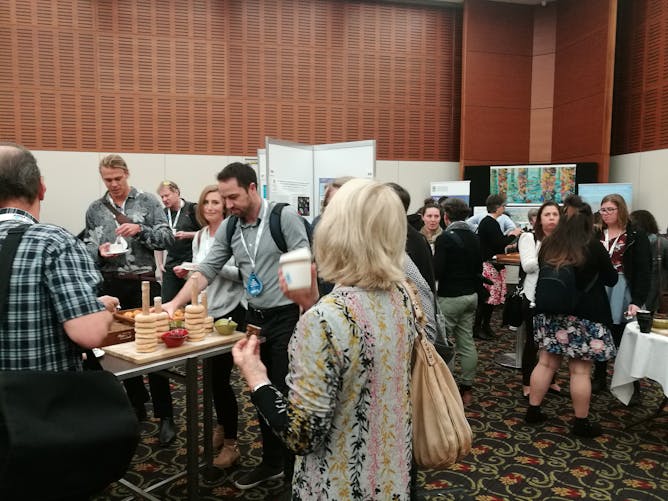
Delegates at this week’s marine science conference in Fremantle take a plastic-free coffee break.
Alicia Sutton/AMSA
Elizabeth Sinclair, University of Western Australia; Charlotte Birkmanis, University of Western Australia; Robert Pemberton, University of Western Australia
This year's national conference of the Australian Marine Science Association is a plastic-free zone, as marine scientists aim to reduce the environmental burden of throwaway plastic.
|
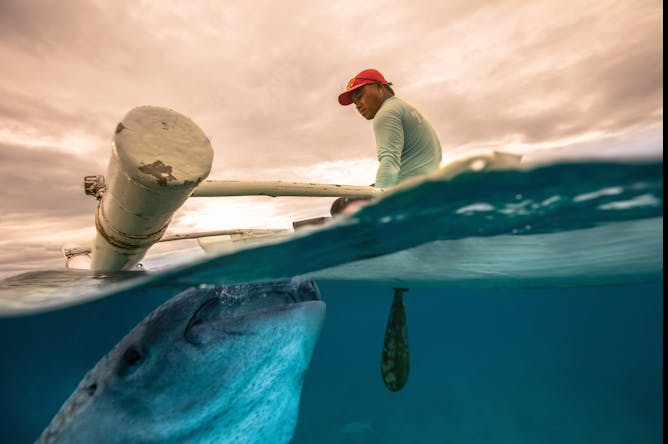
Whale sharks at Oslob are now part of a new ecotourism industry.
Wayne Jones
Judi Lowe, Southern Cross University
Former fishermen in the Philippines are lifting their families out of poverty through whale shark tourism.
|
|
|

Jenni Downes, University of Technology Sydney
Dumping your closet debris on a charity shop just means giving volunteers the cost of sorting out your landfill.
| |
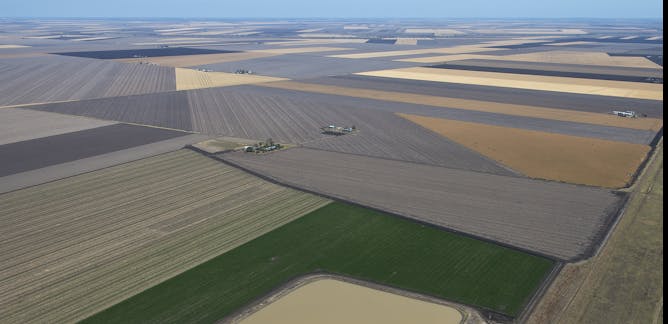
Richard Trethowan, University of Sydney
There are plenty of barriers, but if we really want to we can feed the world on plant protein (largely from legumes).
|
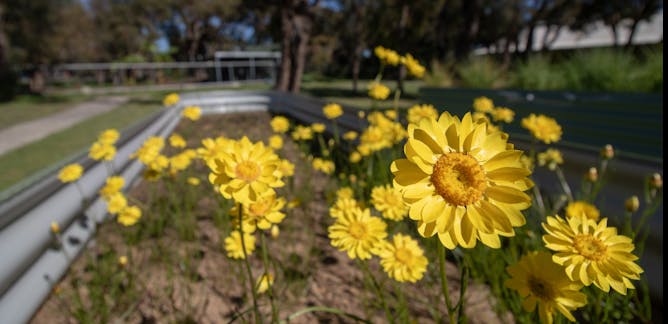
Leonie Monks, Murdoch University; Alanna Chant; Andrew Crawford
Despite the optimistic name, the showy everlasting only has three wild populations in Australia. But a West Australian public school has stepped up to help grow vital new seeds.
| |
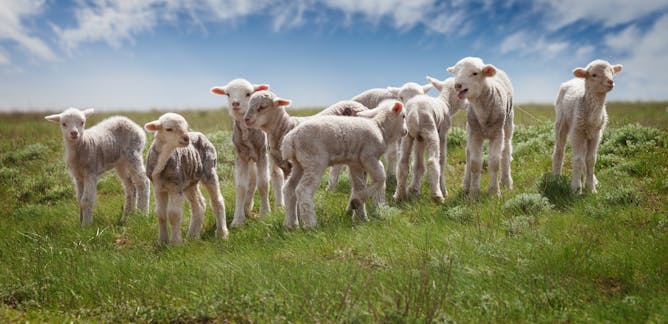
Troy Baisden, University of Waikato
Regenerative agriculture has the potential to build production and reducing pollution, but it needs a clearer definition.
|
|
|
|
|
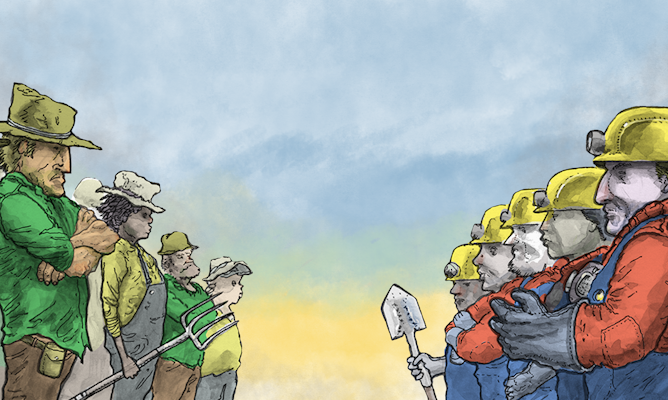
Conflict can make us lose sight of common goals and interests.
Darren Fisher
Jutta Beher, University of Melbourne; Darren C Fisher, Swinburne University of Technology; Leonie Seabrook, The University of Queensland; Winnifred Louis, The University of Queensland
To solve our global problems we must learn to think beyond our tribes.
|
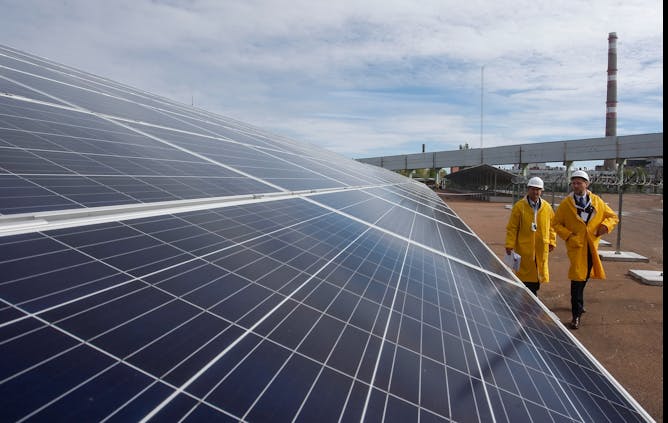
A 1 kilowatt solar PV panel can save about 1.4 tonnes of carbon dioxide emissions per year.
Stepan Franko/AAP
Andrew Blakers, Australian National University
By investing in solar panels and going electric for your motoring and heating, you can directly offset your greenhouse emissions. And in the long run, the upfront costs will repay themselves.
|
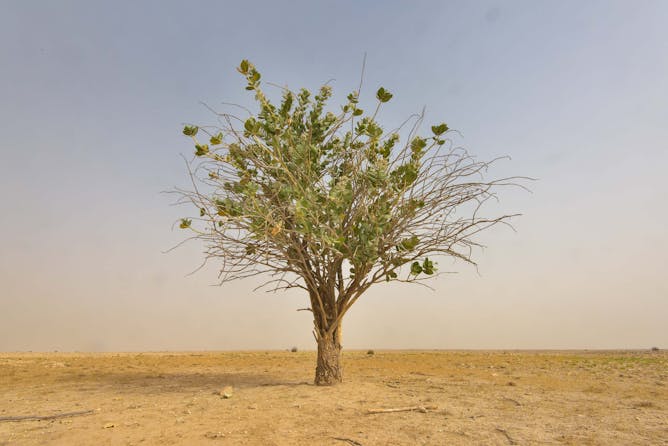
Providing optimism in the face of environmental reality can help people stay aware and hopeful for a positive outcome.
Photo: A. Sergeev
Dominic McAfee, University of Adelaide; Sean Connell, University of Adelaide; Zoe Doubleday, University of South Australia
When it comes to environmental activism, optimism is key.
|
| |
Featured jobs
|
|
|
Featured events
|

|
Kolling Institute of Medical Research, Kolling Auditorium, Level 5, Building 6, Royal North Shore Hospital, 10 Westbourne Street , St Leonards, New South Wales, 2064, Australia — University of Sydney
|
|
|
|
| |
| |
| |
| |
| |
|
|
|
|
|
|
|